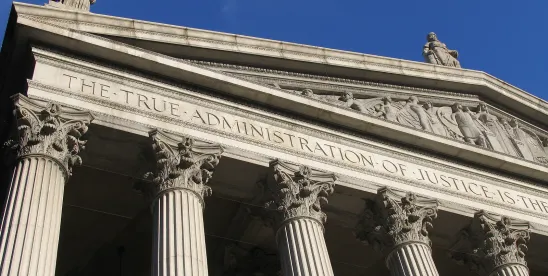Loper Bright Enterprises v. Raimondo, 603 U.S. ___, 144 S. Ct. 2244 (2024); Corner Post, Inc. v. Board of Governors of Fed. Reserve Sys., 603 U.S. ___, 144 S. Ct. 2440 (2024)
The United States Supreme Court has overruled its own opinion in Chevron U.S.A., Inc. v. Natural Resources Defense Council, Inc., 467 U.S. 837 (1984), and held that federal courts (not administrative agencies) are the final decision-makers regarding the meaning of otherwise ambiguous statutes. Before Loper Bright, when faced with an ambiguity in a statute, federal courts applied a two-step analysis, inquiring: (1) whether Congress directly spoke to the precise question at issue; and (2) if the statute is ambiguous, is the administrative agency’s interpretation permissible and, if so, defer to that interpretation. Loper Bright eliminates “mechanical” judicial deference to an agency’s interpretation. Three days after the Loper Bright decision was issued, the Court held that a claim brought challenging a federal regulation accrues when the plaintiff was first injured, not when the regulation was initially promulgated. In Corner Post, the Court determined that the six-year statute of limitations for the claims of companies challenging credit-card interchange fees under a Federal Reserve Board regulation began accruing when they first paid the fees, rather than the earlier date in 2011 when the regulation was issued. Because a newly incorporated company may now challenge virtually any regulation to which it is subject, there is effectively no longer any limitations period for such lawsuits, as Justice Jackson wrote in dissent. In combination with Loper Bright, Corner Post creates the potential for successful challenges not only to new regulations, but also to well-established ones that are decades old.



 />i
/>i

